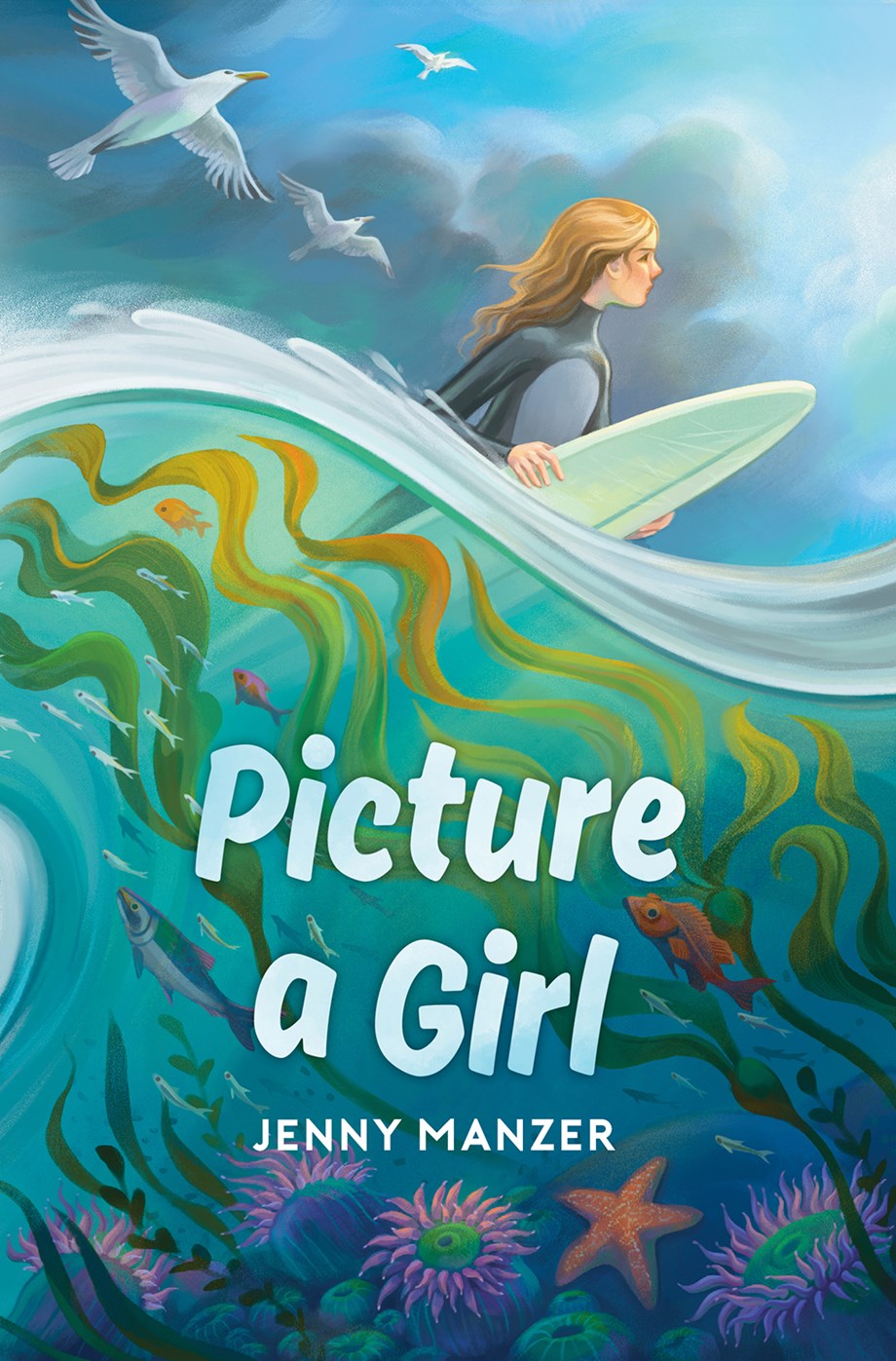Picture a Girl

Picture a Girl
When I wake up, I sense a stillness in the cabin, as if the rain made everything heavy, and quiet. There is no scent of coffee or toast in the air, no smell of anything, except the slight dankness of the cabin that never quite leaves no matter how much air it out in summer.
“Mama?“ I ask. My voice quavers. My words sound like they come from someone slipping slowly on a patch of ice, frightened and wobbly. I dig my nails into my palm to distract myself from the sound of the wind thumping against the side of the cabin.
I know right away that she is gone. Again. Billy is still sleeping, curled up in his bed, a soft mound under the covers. Seeing the mound of his shoulder makes me sad. He is going to be hurt and worried and angry. I look for her beat up Blundstone boots by the front door, even though I know they are gone. Her green backpack is missing, along with the robin’s-egg-blue Helly Hansen, rain jacket she wears almost year-round. My eyes adjust to the light and I blink back tears. I notice a piece of lined paper sitting on the kitchen table. She must have torn it from one of my school notebooks. I frown in annoyance.
Dear Adelaide and Billy,
Gone for a little adventure.
Love you,
Mama
I sigh and bite my lip so hard I get the tinny taste of blood. There’s no mention of how long she’ll be gone this time. There’s a legion of blank lines remaining, yet that’s all she thought to say.
I think, as usual, about food. There is never enough. I start throwing open the kitchen cupboards, banging the doors, making noise. Angry. I find a bulk-food bag of steel-cut oats that has enough in it to make two bowls. There’s half a carton of milk in the fridge. It’s not much, but it’s something. I stand over Billy, take a deep breath, knowing in ten seconds his day will be ruined.
“Wake up, Billy,” I say, placing my hand on his shoulder and shaking.
He turns his head, squints at me.
“She’s gone again, isn’t she?”
Once again Adelaide (Addie) and Billabong (Billy) are left by their mother to fend for themselves in their small rundown vacation cabin in a fictional tourist town on the west coast of Vancouver Island. Even when their mother, Jeanie, is home, the family struggles to put food on the table and clothes on their backs. The one thing they don’t skimp on is surfing. They all have surf boards and surfing wetsuits. Jeanie is a natural surfer, and, when she is not drinking, she lives for the surf and shares her passion with her children. Stories are the glue that holds the family together. As important as they are, they do not take care of physical needs in spite of the richness they bring to their emotional lives.
Addie is an expert at guiding she and Billy through the pitfalls of being abandoned by their mother so they can stay together and out of care. Addie is beautifully, compassionately drawn, and readers feel her hunger for food and love, her humiliation and her courage. Manzer takes this brush to the other characters, and readers can almost forgive Jeanie for deserting her children. Through the family stories, readers learn of the intergenerational trauma, the scars and creativity of poverty and the power of love and family.
This story of children being abandoned by parents, siblings fearing separation if the abandonment is revealed, has been told before but seldom with this emotional intensity, honesty and candor found in Picture a Girl.
Ruth McMahon is a professional librarian working in a high school in Lethbridge, Alberta.
